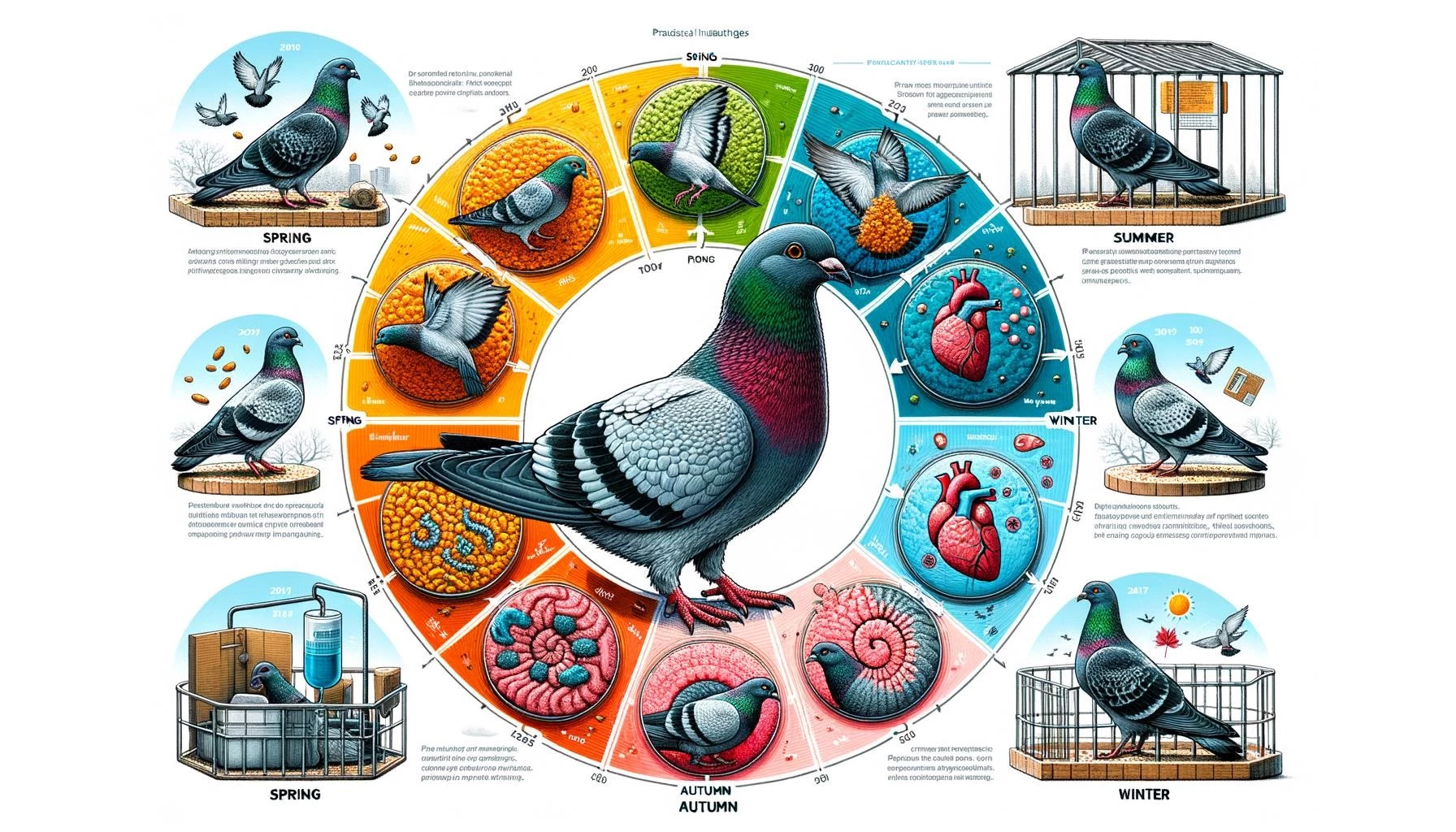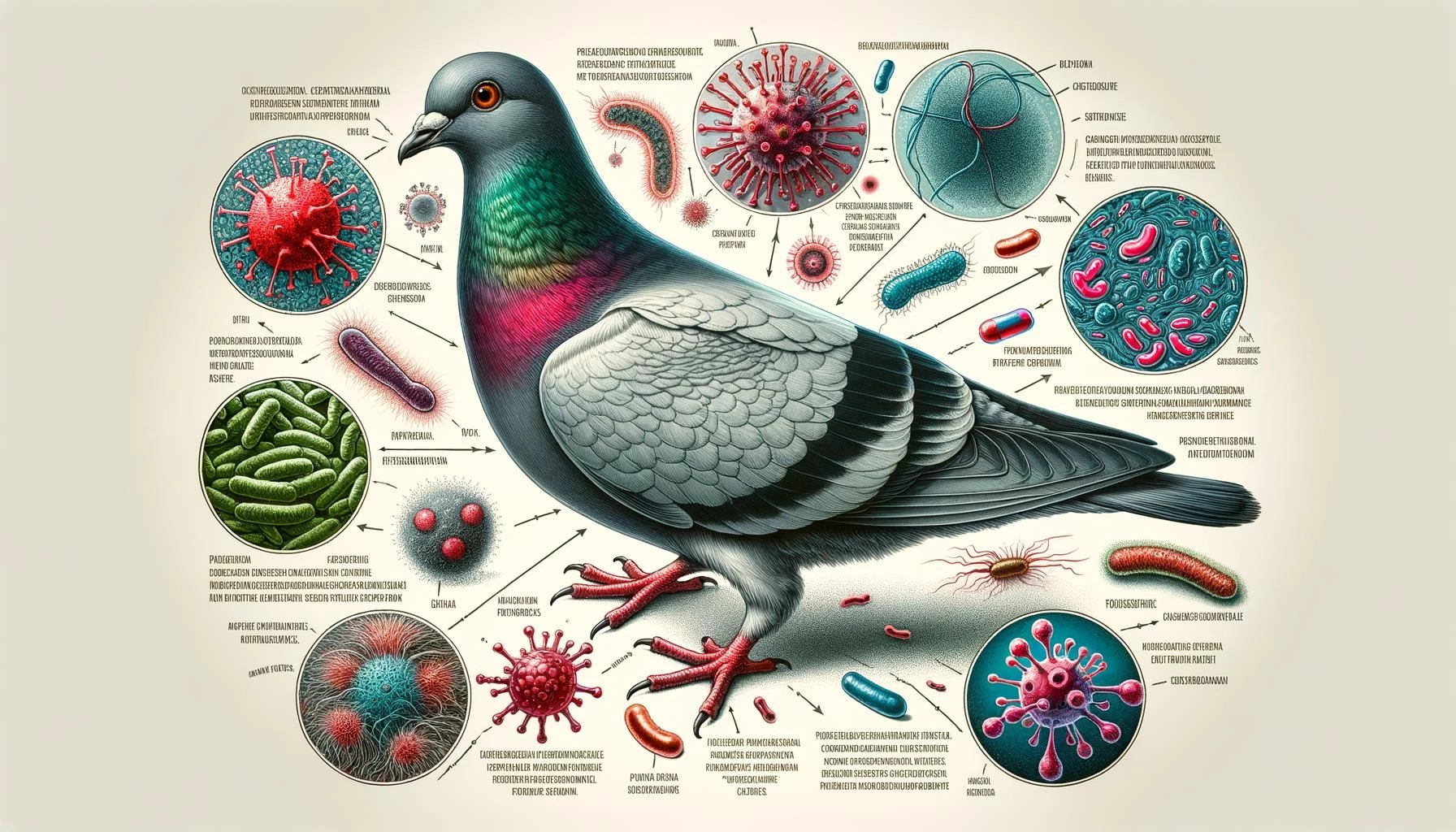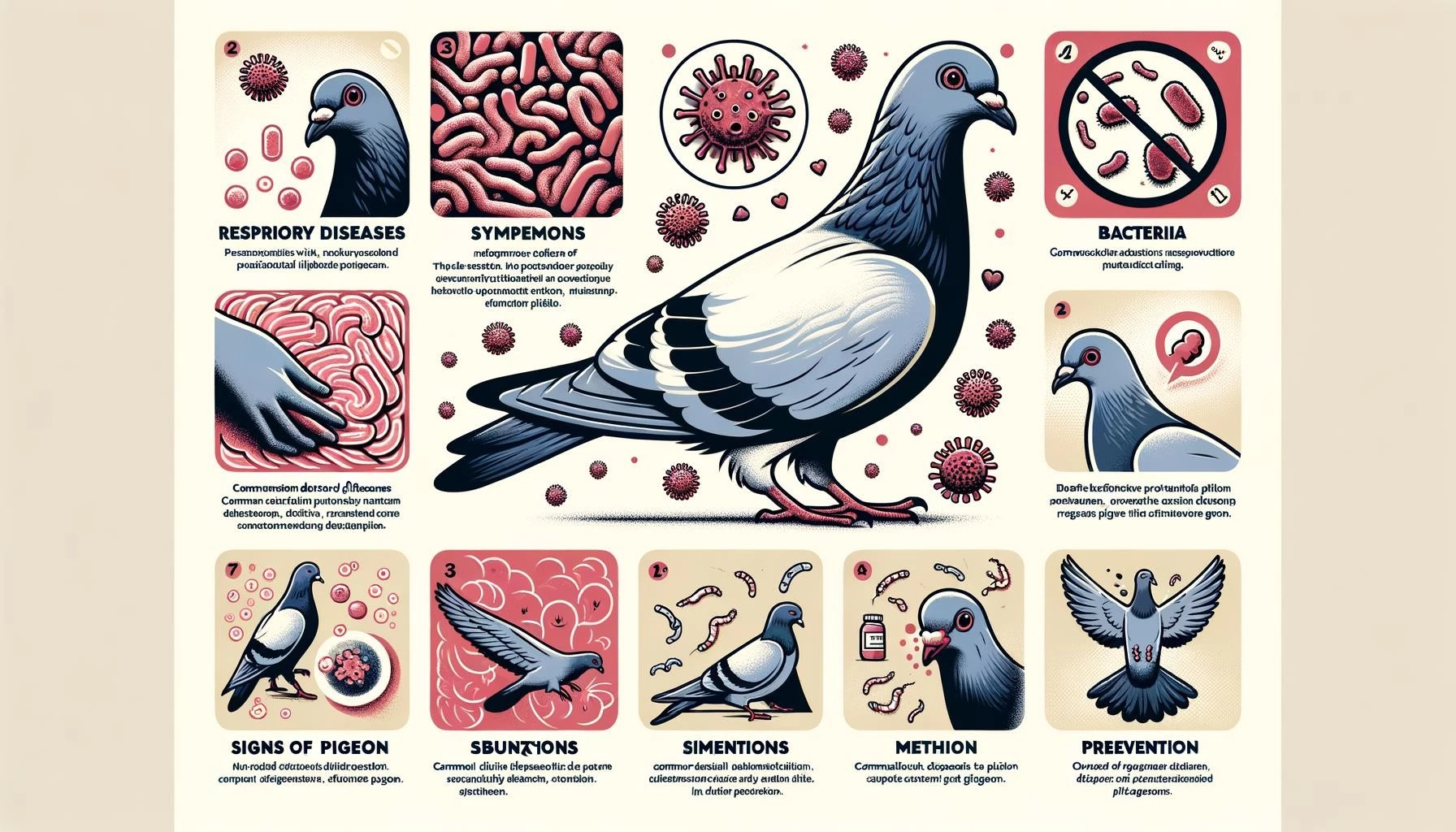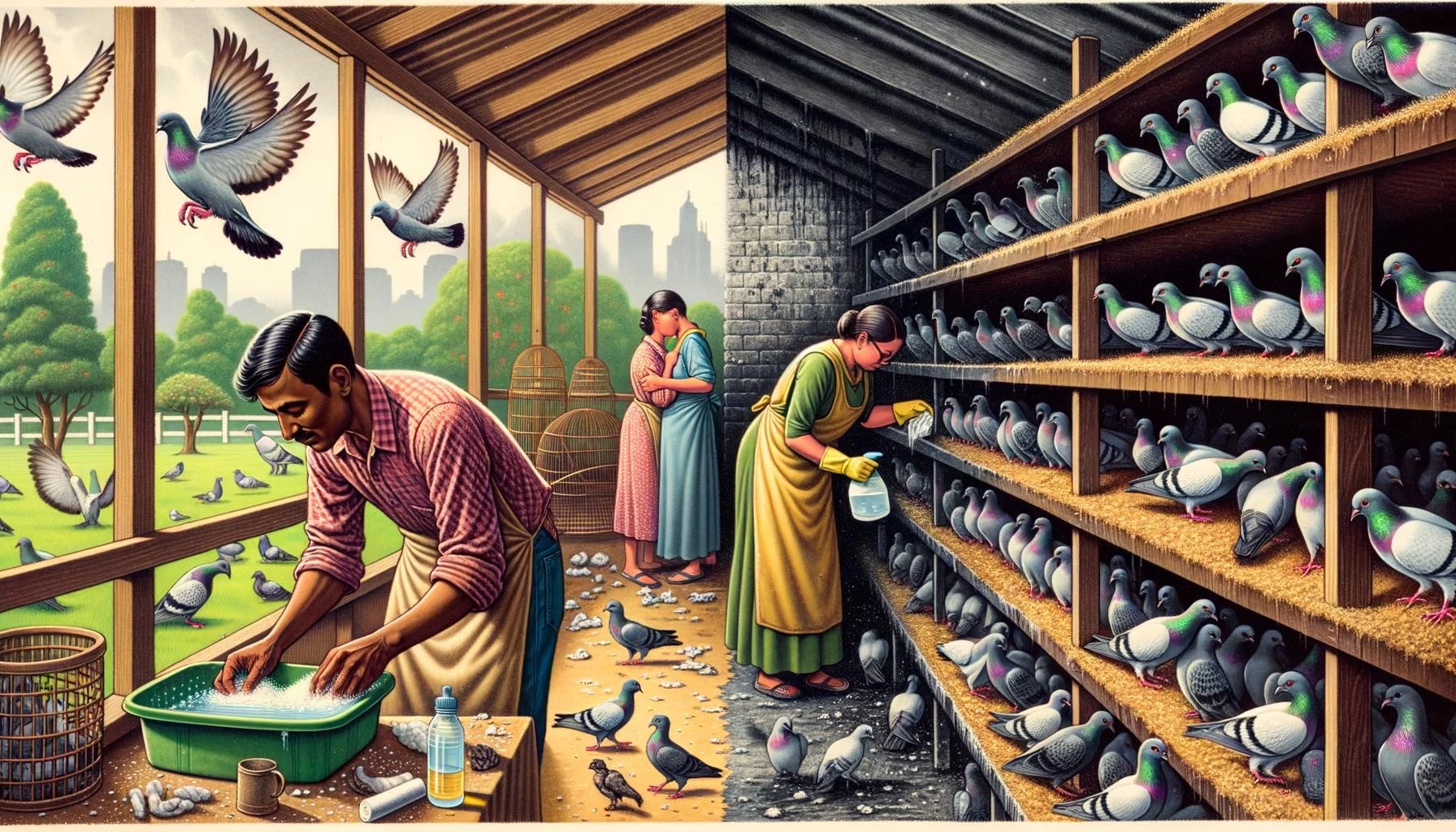Pigeons are common birds found in urban and rural areas. While they are often seen as a nuisance due to their droppings and ability to transmit diseases, pigeons are actually quite resilient and can adapt well to different seasons, including winter. In this article, we will explore the impact of seasonal changes on pigeon health and discuss how to keep them healthy throughout the year.
Key Takeaways
- Pigeons are highly adaptable and can survive in cold weather by roosting in or on buildings that provide shelter and warmth.
- Common diseases associated with pigeon droppings include Cryptococcosis, Histoplasmosis, and Psittacosis, but the risk of transmission to humans is rare.
- Pigeons have two primary breeding seasons: March to June and August to November.
- Proper hygiene maintenance, including regular cleaning of cages or lofts, fresh food, clean water, and sterilizing feed and water containers, is crucial for keeping pigeons healthy.
Pigeons and Winter Survival
While many bird species migrate to warmer climates during the winter, pigeons are known for their ability to survive in cold weather. Unlike other birds, pigeons can find shelter and warmth in urban environments by roosting in or on buildings. Their ability to adapt to city life has made pigeons a common sight in urban areas.
Pigeons have unique traits that help them cope with the cold. Their feathers provide insulation, keeping them warm. Additionally, they have a high metabolic rate, which helps generate body heat. Pigeons also have a natural roosting instinct, meaning they seek out safwe and sheltered areas to rest during the night.
However, it’s worth noting that extreme cold temperatures can still pose risks to pigeons. Severe winter weather, such as prolonged sub-zero temperatures or heavy snowfall, can make it more challenging for pigeons to find food and water. During such periods, providing extra shelter and food can help support their survival.
Pigeon Diseases and Health Risks
Pigeon droppings can carry various diseases, but the risk of transmission to humans is generally low. Common diseases associated with pigeon droppings include Cryptococcosis, Histoplasmosis, and Psittacosis.
Cryptococcosis is a fungal infection that primarily affects the lungs and can lead to meningitis. Histoplasmosis is caused by inhaling spores from the fungus Histoplasma capsulatum, often found in bird droppings and soil. Symptoms of histoplasmosis can range from flu-like symptoms to severe respiratory problems. Psittacosis, also known as ″parrot fever,″ is a bacterial infection that can be transmitted from infected birds, including pigeons, to humans through inhalation.
It’s important to note that the risk of contracting these diseases is relatively low. Most people who are exposed to pigeon droppings do not develop any symptoms or serious health complications. However, individuals with weakened immune systems, such as those with HIV/AIDS or undergoing chemotherapy, may be at higher risk. Taking basic precautions, such as proper hygiene practices (wearing gloves, masks, and washing hands thoroughly when cleaning droppings) and avoiding inhalation of dust from dried droppings, can help further minimize any potential health risks.
Keeping Pigeons Healthy
Proper hygiene maintenance is crucial for keeping pigeons healthy. Here are some essential practices:
- Clean the cage or loft daily: Regularly remove droppings and soiled bedding to prevent the build-up of harmful bacteria and parasites.
- Provide fresh food and water: Pigeons require a balanced diet to stay healthy. Make sure to provide fresh food and clean water daily.
- Sterilize feed and water containers regularly: Cleaning and sterilizing feeders and water containers help prevent the growth of bacteria and ensure the birds have access to clean and uncontaminated food and water.
- Monitor for signs of illness: Keep an eye out for any signs of health problems in your pigeons, such as weight loss, changes in behavior, respiratory issues, or abnormalities in feathers or droppings. If you notice anything concerning, consult a veterinarian experienced in avian health.
- Provide adequate shelter: Ensure that your pigeons have a sheltered and protected area to roost, particularly during extreme weather conditions.
By following these practices, you can help ensure the health and well-being of your pigeons throughout the year.








